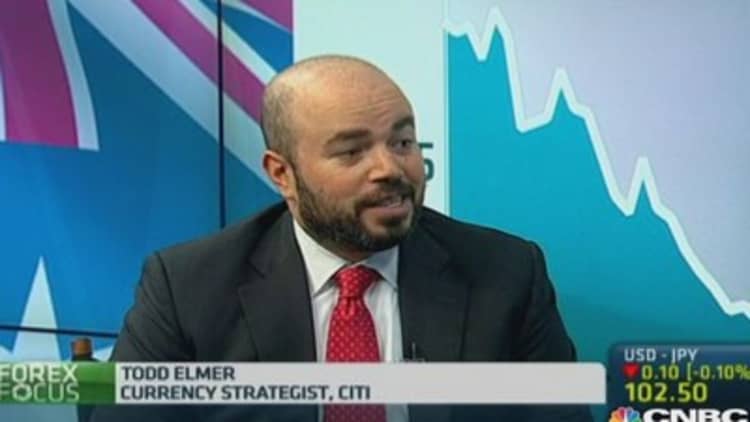Australia's much-coveted AAA credit rating has been in the spotlight this week after a report in the local media that Standard & Poor's could review the rating unless big budget cuts are made in coming years.
The credit ratings agency, one of the world's three biggest, has also been reported as saying that there is no immediate risk to the rating, which it has on a stable outlook.
What then is the big deal? The short answer is politics related to passing last week's federal budget.
Read MoreBudget day in Australia: here comes a tax hike
Both Prime Minister Tony Abbott and Treasurer Joe Hockey said this week that Australia's credit rating could be at risk if the opposition Labor Party side with minority parties to block budget measures in the Senate – the upper house of parliament.
"The reality is a downgrade would be significant, but unlikely," said Chris Weston, chief market strategist at trading firm IG in Melbourne.
"It's worth pointing out that regardless of the political party in Australia, both are very much focused on prudent management of the government's balance sheet and thus narrowing of the deficit is front and centre, which of course is one of the key issues S&P announced," he added.
Australia is one of few countries in the world to hold the top rating. It was also one of the only developed countries to avoid a recession during the global financial crisis, but the economy has come under pressure as mining investment slows.
Last week, Abbott's conservative government delivered a harsh budget to cut the budget deficit in the years ahead.
The measures, which include an extra 2 percent rise in income tax for those earning above A$180,000 ($166,000), a cut to 16,500 public sector jobs, the rolling back of universal healthcare and rises to the pension age. Some of the measures such as scaling back healthcare are expected to face opposition in the Senate.
Abbot enjoys a majority in the lower house, but not the upper house which has the power to block legislation.

"Australia does need to get is deficit down to retain its rating," said Shane Oliver, chief economist and head of investment strategy at AMP Capital in Sydney.
"What S&P is saying is consistent with what it has said in the past -- that there's no great problem at the moment but if the budget deficit heads in the wrong direction, there will be and if the budget is not passed there could be a problem," he added.
The government forecasts a budget deficit of A$29.8 billion ($28 billion) in the 2014/15 fiscal year, falling to A$2.8 billion by 2017/2018 or 0.2 percent of GDP.
Read More Australia's budget: Harsh or fair?
"Of course there is going to be a huge political stand-off in the Senate over some of policies (namely education and health) and this could cause some angst from Aussie dollar and rates traders, but one suspects this will be negotiated in such a way that a resolution will be found and a downgrade will be avoided and S&P appeased," said IG's Weston.


